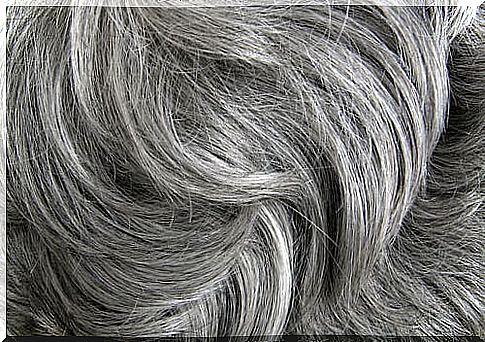Stress Produces Gray Hair, Says Study
Research conducted at Harvard University by a group of neurologists postulated that stress produces gray hair due to the particular functioning of the nervous system sympathetic. We present their findings to you in this article.

For a long time, we have had the intuition that stress produces gray hair. It was just a popular belief with no scientific basis. Today, a group of researchers from Harvard University has proven that this is not a myth, but a reality.
Several legends in history have mentioned that stress produces gray hair. One of the best known is that of Marie-Antoinette, the queen of France who was guillotined during the Revolution. It is said that in one night her hair turned white.
Another famous legend is that of Thomas More, who is also said to have undergone a significant change in appearance in a single night. In fact, many people have seen how someone goes through a personal crisis phase and looks old. Today we know it’s true: stress produces gray hair.
Stress causes gray hair to appear
A group of scientists from Harvard University (United States), led by Dr Ya-Chieh Hsu, published their research in the journal Nature . The study indicates that after several tests and studies, it was concluded that stress produces gray hair.
Most interestingly, the team of neurologists not only corroborated the direct influence of stress on graying, but also identified the mechanisms that generate this effect. This is a major step forward.
Stress is a global scourge and many studies have been conducted in recent decades on this phenomenon. It has been linked to various ailments and diseases. The impact on physical appearance seemed obvious, but this study in question takes it a step further, connecting the dots.

A revealing study
To arrive at these conclusions, the Harvard scientists first conducted an experiment on mice. They researched the possible influences of this factor on the appearance of gray hair, and they also looked at the different physiological changes resulting from anxiety states.
The researchers started by inducing a state of stress in the mice. They injected them with a compound called resiniferatoxin. This substance stimulates the production of cortisol, known as the stress hormone.
Experts hypothesized that the stress triggered an immune attack on the animals’ bodies, which ultimately affected the pigment-producing cells. They thought that was how the mechanism worked. However, they were surprised because some mice no longer had immune cells but were still graying.
In response, the scientists decided to remove the adrenal glands from some of the mice, so that they could no longer produce cortisol. Then they put them under stressful situations and the unexpected happened: white hair kept appearing.
Gray hair under stress: why does this effect occur?

The group of neurologists began to rule out options, and eventually focused on the sympathetic nervous system. It is he who is responsible for regulating the fight or flight response in the body. The nerves that make up this system branch out and are present in every hair follicle in the skin.
After several investigations, scientists found that in stressful situations, these nerves release a chemical called norepinephrine. This substance is then taken up by stem cells which regenerate hair pigments and are located near these nerves.
Norepinephrine causes excessive activation of these cells. What happens next is that they produce more pigment than necessary and deplete their reserves. When this happens, these cells can no longer regenerate, that is, the pigment reserve runs out and hair without pigment begins to appear, that is, white hair.
What we can expect
Scientists have pointed out that this situation is irreversible, which means that once these stem cells are lost, there is no turning back: the effect is permanent. Research has found that stress produces gray hair and has clarified how, but it is not yet clear why it is.
However, this is a major breakthrough, which has already given rise to new research projects on the effect of stress on various body tissues. Research helps pave the way for a deeper understanding of stress and its effects.
This is a step forward for the future development of methods to reverse the effects of stress. For now, the research director has recommended taking life a little slower. It is clear that worrying too much only has negative effects.









